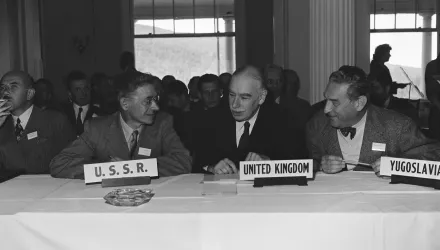International Security is America's leading peer-reviewed journal of security affairs.
Abstract
As the debate on a U.S. national missile defense intensifies, the decision about whether the United States should develop an NMD system seems to be giving way to questions over the type of system to be deployed and its scope: For example, should the United States pursue NMD against Russia or China? What are the possible security benefits and costs of limited NMD? What can the United States do to counter the international political fallout of limited NMD? Charles Glaser of the University of Chicago and Steve Fetter of the University of Maryland conclude that "among the options for limited NMD, the case for a surface-based boost-phase system [targeted against “rogue states”] is strongest.” Such a system is least likely to fuel Russian and Chinese fears, which should be a central U.S. consideration. Heightened tensions with either Russia or China because of U.S. pursuit of NMD could lead to “triggering reactions” that could actually decrease overall U.S. security.
Fetter, Steve and Charles L. Glaser. “National Missile Defense and the Future of U.S. Nuclear Weapons Policy.” Summer 2001







